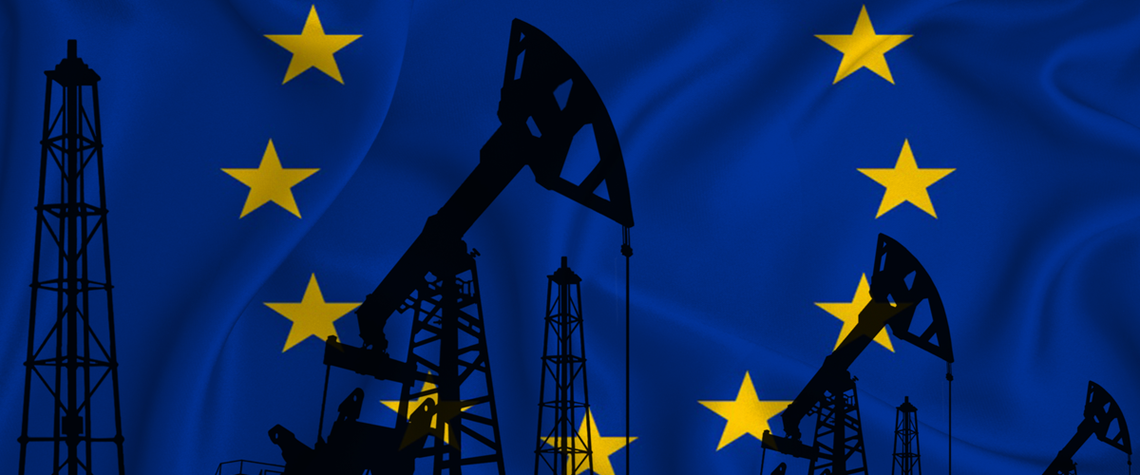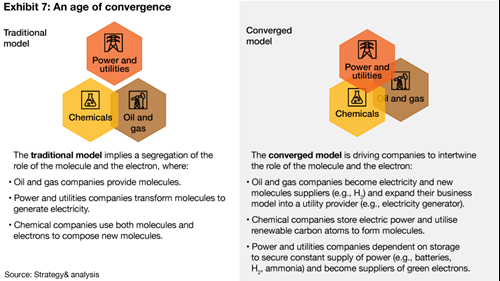“It is unequivocal”. These are the first three words in the Intergovernmental Panel on Climate Change’s new report laying out how global warming is undeniably caused by human activities—inducing widespread and rapid changes to our planet’s land, air and sea. According to the report, immediate, rapid and large-scale reductions in greenhouse gas emissions are the only way to limit warming to 1.5°C or even 2°C.
Europe has set an example in this regard: The ‘European Green Deal’ aims to achieve a climate-neutral EU by 2050 and is the most comprehensive climate legislation project worldwide to date. One of the milestones for its implementation is the reduction of CO₂ emissions by 55pc by 2030 compared with 1990.
With the ‘Fit for 55’ package, the European Commission is therefore presenting stricter guidelines and higher targets—for example in the areas of emissions trading, emissions reduction and renewable energies. Substantial interventions in all sectors are required to implement this ambitious plan. New and stricter regulations will make emitting greenhouse gases considerably more expensive; at the same time, mechanisms for expanding renewable energies will be promoted.
One far-reaching measure is the significantly stronger limitation of CO₂ certificates in the EU Emissions Trading System (ETS). The expected rise in prices for emission allowances increases the pressure on all industries subject to the ETS to decarbonise more quickly.
To prevent companies from relocating their operations to other EU countries, the EU imposes taxes on imported products from selected industries—such as cement, electricity, steel and aluminium, as part of the Carbon Border Adjustment Mechanism. However, there are doubts about whether the negative consequences of stricter emissions trading can be offset by this new mechanism. In addition, the energy efficiency target has been tightened, which requires investments in technology and buildings across all sectors and on both the company and government sides. CO₂ emission standards for cars and vans have also been tightened. Specific directives and regulations in the areas of infrastructure and alternative fuels, maritime and air transport, and agriculture and forestry have also been revised and tightened.
Fit for 55 poses particular challenges for energy as the most CO₂-intensive sector. It is not only the more-limited CO₂ certificates that are pushing energy suppliers to act quickly and effectively: the EU Renewable Energy Directive (Red II) increases the target share of renewable energy by eight percentage points, to 40pc, by 2030. This will require increased investment in solar photovoltaic plants, wind farms and hydrogen. Value chains and entire business models of energy-intensive companies need to be rethought and restructured.
Aligning business models
While this poses challenges and risks for continuing business operations, it also provides companies with the opportunity to align their business models to long-term trends and demands in the market. In the coming decade, industries such as oil and gas, power and utilities, and chemicals—once sharply delineated—will converge and form into integrated energy systems.
Traditional barriers between energy sectors will disappear. Utilities will have to delve into new business activities and chemicals companies must reinvent themselves as champions of the circular economy. At the same time, oil and gas companies are investing heavily in renewables. The future competitiveness of companies critically depends on their ability to plan ahead and rethink their business models in light of the new energy systems that are emerging—and thereby responding to ESG demands and targets.
Holistic thinking with ESG goals in mind
Taking a holistic approach, companies must rethink their emissions along the lifecycles of their products, services and supply chains. Any corporation seeking to decarbonise will have to adjust its operating model—for instance, operators of fleets decarbonising through electrification must navigate new technologies, rebuild their infrastructure and reconsider their supply chains. However, those investing in the strategy and implementation of an ESG transformation over the long term achieve transparency and trust among a wide range of stakeholders from employees to customers to investors—which is also reflected in the company value in the medium and long term.
So what should companies do and where should they start with their transformation journey? What is needed is a newly designed reporting system, a strategic adjustment that does not shy away from radical steps where necessary and, finally, a comprehensive transformation.
Actions taken and their impact can only be measured if there is appropriate reporting that goes beyond purely financial aspects. Even if there are no common standards yet, the European Central Bank and Germany’s Federal Financial Supervisory Authority are already calling for the disclosure of climate-related risks in the impact and KPI reporting of companies. These advances highlight the need to transparently communicate not only ESG goals, but also successes.
However, measures and actions taken need to go beyond reporting: Companies need to transform holistically over all corporate processes and levels, including a realignment of the corporate strategy and business model, an implementation of new technologies and, more broadly, an adaptation of the entire supply chain.
ESG encourages innovation, as many emission targets are not achievable with today's technologies. Alternative processes and new business models trigger the transformation process, help companies discover new opportunities and enable them to prepare for the future in the best possible way.
The Fit for 55 package therefore requires quick and interdisciplinary action at numerous points. For companies to meet this challenge, it requires a cross-sectoral understanding of the market and holistic solutions. Therefore, it is even more important that companies know their processes and are able to evaluate them holistically so they can realise a successful transformation according to the specifications. Our team of experts has already applied holistic analyses and implemented holistic approaches for numerous companies from different sectors and has thus been able to find concrete and individual solutions for client concerns.









Comments